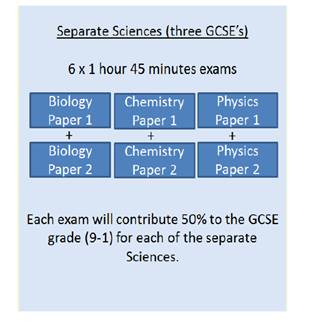Science
Our Science department believes in: ‘Discovering Science in the universe through hands-on investigation, discussion and enquiry.’
Throughout a student’s journey at Ridgewood we continue to cultivate an understanding around central concepts, through all three sciences, enabling students to develop their ability to question and link their wider knowledge to a strong, central understanding of scientific phenomena whilst ensuring that the curriculum is relevant and accessible to all.
Our Science Curriculum will give students the opportunity to:
|
|
|
|
|
|
|
Please get in touch via the enquiry form on our Contact Us page, should you have any further questions about our Science Curriculum please contact Mr Delany, Curriculum Lead. KS3Overview of topics:Key Stage 3 science study provides the foundations for understanding the world through the specific disciplines of biology, chemistry and physics. Science has changed our lives and is vital to the world’s future prosperity, and all students are taught essential aspects of the knowledge, methods, processes and uses of science. The Key Stage 3 curriculum comprises several big ideas, these are:
The topics are revisited each year in a helical structure which helps students make connections between big ideas. Working scientifically also allows our students to work in similar ways to scientists, with our curriculum providing comprehensive coverage of this. We develop four key skills: analysing patterns and data, communicating scientific ideas, scientific enquiry, and problem-solving. Please download the document below to see an overview of the AQA science syllabus. https://filestore.aqa.org.uk/resources/science/specifications/AQA-SCIENCE-KS3-SYLLABUS.PDF How is science assessed in KS3?Throughout the course students will complete in class multiple choice formative assessments, so their teachers can monitor their progress in each topic. Students will complete cumulative summative assessments at the end of every three topics. The assessment dates will be communicated home via the assessment table in the Half-Termly learning maps booklet. Useful web links:KS4Overview of topics:Due to the demanding nature of the GCSE science course and because of the fluidity between trilogy combined science and the separate science route, as a faculty we have decided to reorganise the AQA science specification. Therefore in Year 9, sets 1-3 will cover the separate science (triple) pathway and set 4 will follow the trilogy combined (double) pathway. When students progress into Year 10, only sets 1 and 5 cover the separate science (triple) content and sets 2, 3 and 4 follow the trilogy combined pathway. When students move into Year 11, only set 5 cover the separate science content and sets 1-4 cover the trilogy combined content. Please download the pdfs at the bottom of this page to learn full details of the topics for each subject. Year 9: B1, C1, P1. Year 10: B3, B4, B5, P3, P4, P5, C3, C4, C5. Year 11: B6, C6, C7, P6 and revision. How Science is examined at the end of Year 11:
Useful web links:
How to revise for Science:
|

